
Byblos: The Ancient Gem of Lebanon
Byblos, known locally as Jbeil, is a city steeped in history and charm. As one of the oldest continuously inhabited cities in the world, it offers a unique blend of ancient ruins and vibrant modern life. The city's history dates back to over 7,000 years, making it a treasure trove for history enthusiasts. From the grand Crusader Castle to the ancient Phoenician temples, every corner of Byblos tells a story of its rich past. Wander through the old souks, where you can shop for traditional crafts, jewelry, and souvenirs. The cobblestone streets are lined with quaint cafes and restaurants, offering a taste of authentic Lebanese cuisine. Don't miss the fresh seafood, a local specialty that delights the palate. Byblos also boasts beautiful beaches, where you can relax and soak up the Mediterranean sun. By night, Byblos transforms into a lively hub of entertainment. The city's nightlife is a mix of cozy bars, lively pubs, and vibrant nightclubs. Live music and cultural festivals are frequent, providing a perfect end to a day of exploration. Whether you're a history buff, a foodie, or just looking to relax, Byblos has something for everyone.
Local tips in Byblos
- Visit Byblos Castle early in the morning to avoid crowds and capture the best photos.
- Wear comfortable shoes as the cobblestone streets can be uneven.
- Try the local seafood dishes at the harbor for a fresh and delicious meal.
- Explore the old souks for unique souvenirs and traditional crafts.
- Check the local calendar for cultural festivals and live music events during your stay.
Byblos: The Ancient Gem of Lebanon
Byblos, known locally as Jbeil, is a city steeped in history and charm. As one of the oldest continuously inhabited cities in the world, it offers a unique blend of ancient ruins and vibrant modern life. The city's history dates back to over 7,000 years, making it a treasure trove for history enthusiasts. From the grand Crusader Castle to the ancient Phoenician temples, every corner of Byblos tells a story of its rich past. Wander through the old souks, where you can shop for traditional crafts, jewelry, and souvenirs. The cobblestone streets are lined with quaint cafes and restaurants, offering a taste of authentic Lebanese cuisine. Don't miss the fresh seafood, a local specialty that delights the palate. Byblos also boasts beautiful beaches, where you can relax and soak up the Mediterranean sun. By night, Byblos transforms into a lively hub of entertainment. The city's nightlife is a mix of cozy bars, lively pubs, and vibrant nightclubs. Live music and cultural festivals are frequent, providing a perfect end to a day of exploration. Whether you're a history buff, a foodie, or just looking to relax, Byblos has something for everyone.
When is the best time to go to Byblos?
Iconic landmarks you can’t miss
Byblos Citadel
Discover Byblos Citadel, a stunning archaeological site blending ancient history and breathtaking Mediterranean views in the heart of Lebanon.
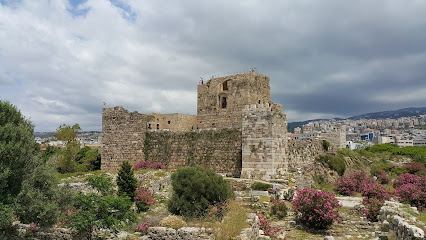
The Old Souq
Explore the vibrant Old Souq in Byblos, a perfect blend of culture, history, and delicious Lebanese cuisine in one of the world's oldest cities.
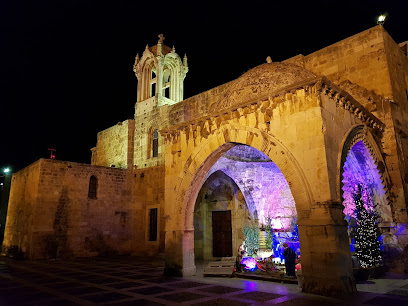
Feniqia
Experience the rich flavors of Lebanon at Feniqia, a premier Lebanese restaurant in the historic city of Byblos, perfect for culinary enthusiasts.
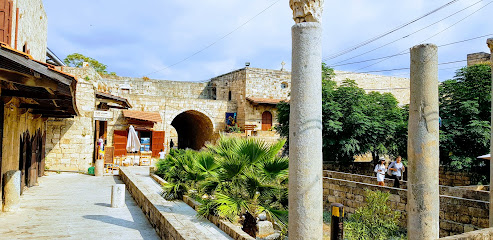
Sapori E Vini
Experience authentic Italian cuisine at Sapori E Vini, a top-rated restaurant in Byblos, perfect for tourists seeking a delightful culinary adventure.
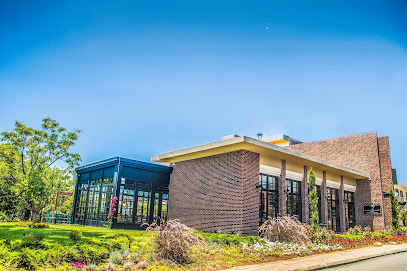
Antoine Saliba World of Jewelry
Explore exquisite handcrafted jewelry at Antoine Saliba World of Jewelry in Byblos, where artistry meets tradition in every unique piece.
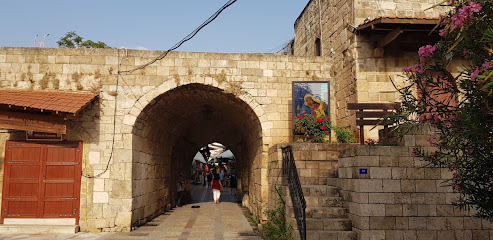
Roadster Diner
Discover Roadster Diner in Byblos for a delightful blend of local and international dishes in a vibrant, welcoming atmosphere.
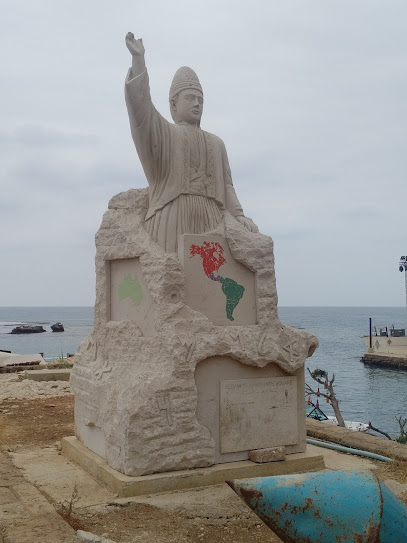
Locanda A La Granda
Experience the authentic flavors of Lebanese cuisine in Byblos at Locanda A La Granda, where every dish tells a story of rich heritage.
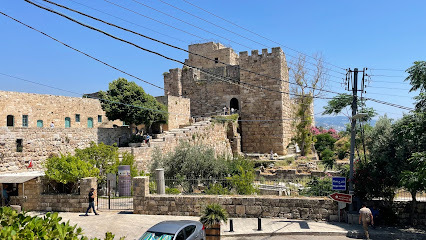
Byblos Dock And Fishing Port
Discover the charm of Byblos Dock and Fishing Port, a vibrant hub of local culture, fresh seafood, and stunning Mediterranean views.
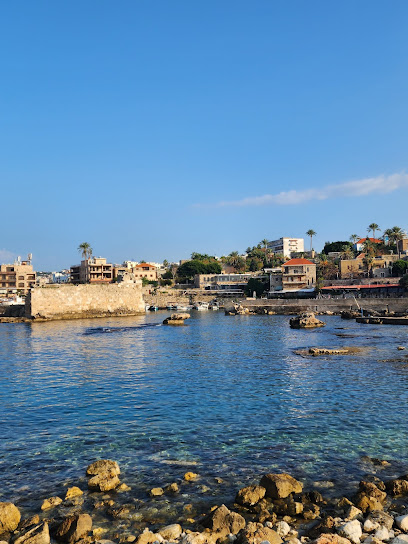
Jbeil Public Park
Explore Jbeil Public Park, a tranquil retreat in Byblos, Lebanon, where nature meets history for an unforgettable experience.
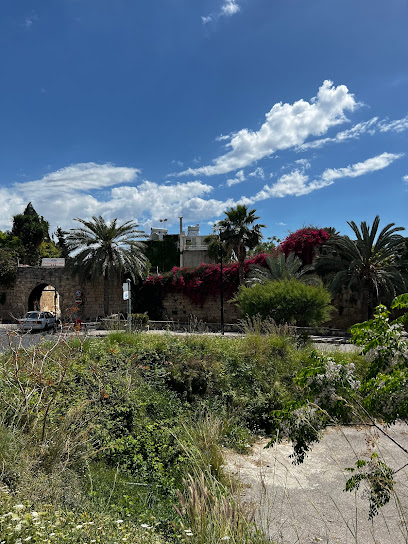
Bahsa Beach
Discover the beauty of Bahsa Beach in Lebanon, where sun, sand, and sea create an unforgettable getaway for travelers of all kinds.
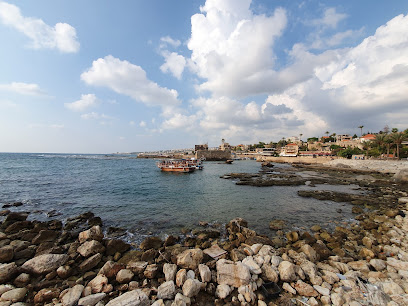
Jbeil Marina
Explore the stunning Jbeil Marina in Byblos, where history meets the sea, offering a perfect getaway for relaxation and adventure.
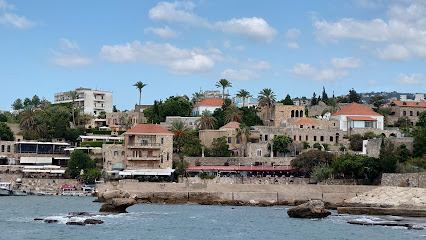
Byblos Sud
Experience luxury and history at Byblos Sud, a premier resort hotel on the Mediterranean coast, perfect for relaxation and exploration.
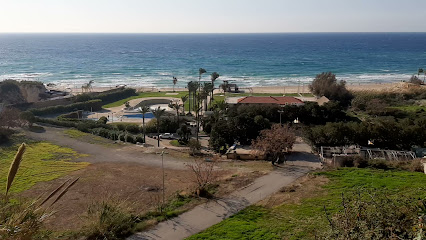
Plage des Rois
Discover the serene beauty of Plage des Rois, a stunning beach on the Mediterranean coast ideal for relaxation and picturesque views.
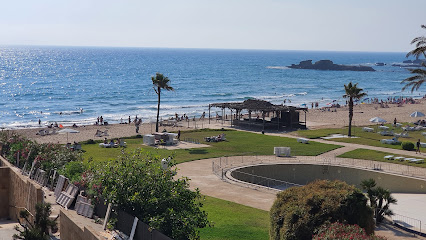
متحف الشمع
Explore the Candle Museum, a captivating journey through the art of candle-making with exquisite exhibits and interactive workshops.
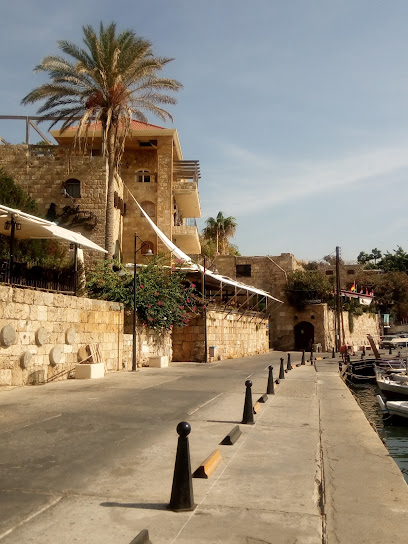
Smar Jbeil Citadel
Explore the rich history and stunning architecture of Smar Jbeil Citadel, a must-see historical landmark in Lebanon offering breathtaking views and cultural insights.
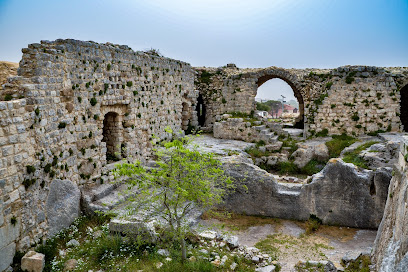
Unmissable attractions to see
Zaituna Bay
Experience the breathtaking beauty of Zaituna Bay, Beirut's promenade filled with restaurants, shops, and stunning marina views, perfect for all travelers.
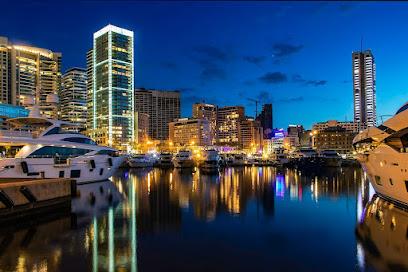
Al Raouche Rocks
Discover the breathtaking beauty of Al Raouche Rocks in Beirut, a natural wonder and iconic landmark perfect for stunning views and local culture.
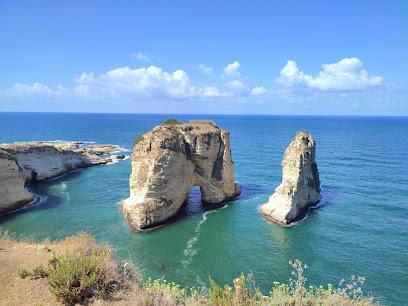
Jeita Grotto
Explore the enchanting Jeita Grotto, a natural wonder in Lebanon, with stunning limestone formations and serene underground lakes that promise an unforgettable adventure.
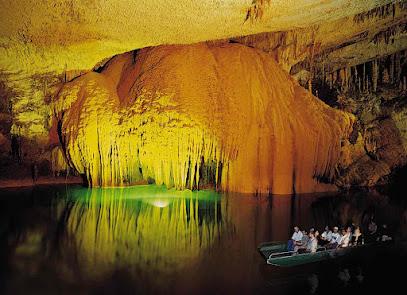
Our Lady of Lebanon بازيليك سيدة لبنان
Discover the spiritual and scenic beauty of Our Lady of Lebanon, an iconic church offering breathtaking views and a rich cultural experience in Harissa.
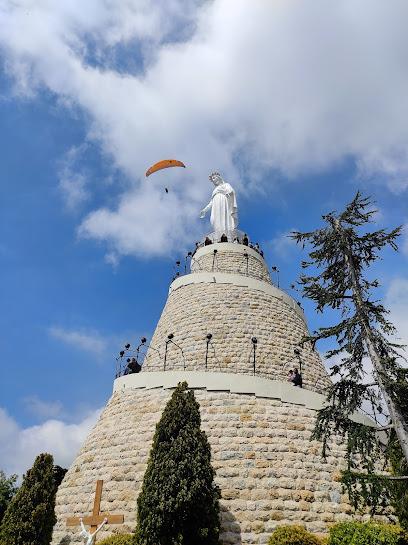
Cedars of God Bsharri
Explore the Cedars of God Bsharri, Lebanon's majestic UNESCO World Heritage site, where ancient trees and stunning landscapes create a serene escape.
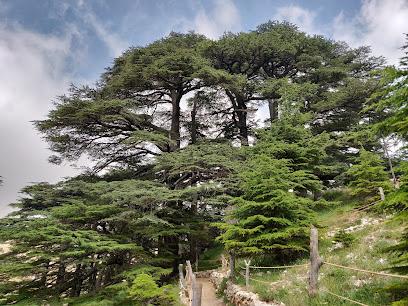
Teleferique du Liban
Discover breathtaking views and adventure at Teleferique du Liban, a premier mountain cable car experience in Lebanon, perfect for tourists and nature lovers.
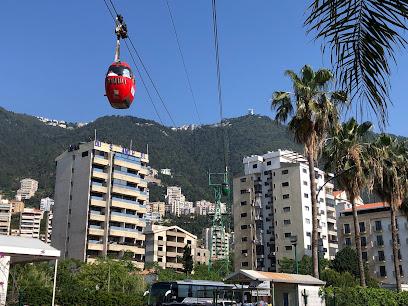
Byblos Citadel
Explore Byblos Citadel, an ancient fortress and archaeological site offering breathtaking views and a rich tapestry of history in Lebanon's coastal gem.
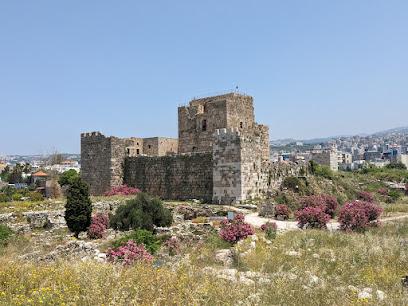
National Museum of Beirut
Explore Lebanon's rich heritage at the National Museum of Beirut, where history comes alive through captivating artifacts and exhibits.
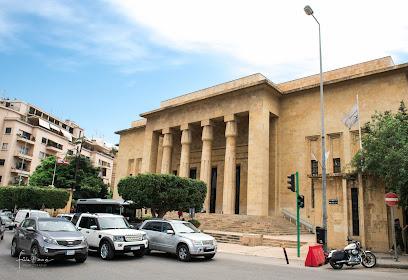
The Old Souq
Discover the vibrant Old Souq of Byblos, where history meets the hustle and bustle of a traditional Lebanese market filled with unique treasures.
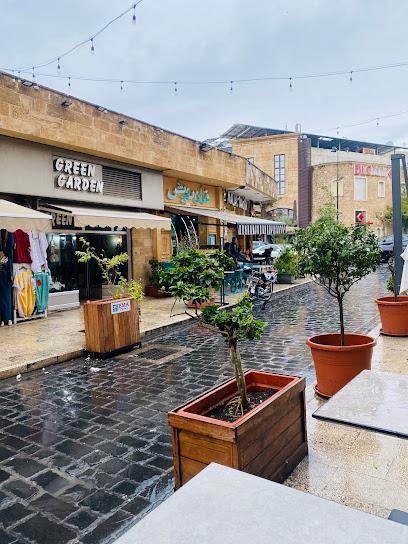
Casino du Liban
Experience the thrill of gaming and vibrant nightlife at Casino du Liban, the ultimate entertainment destination in Jounieh.
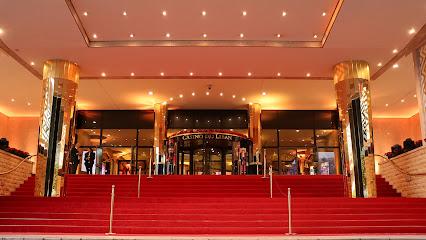
Tripoli Citadel
Explore the Tripoli Citadel, a historic fortress offering breathtaking views and a rich tapestry of Lebanon's heritage.
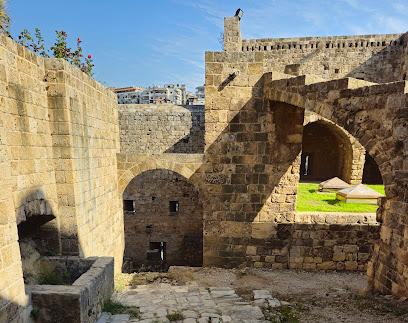
Corniche El Manara, Ain El Mraiseh
Explore the stunning Corniche El Manara in Beirut, where culture meets breathtaking Mediterranean views for an unforgettable experience.
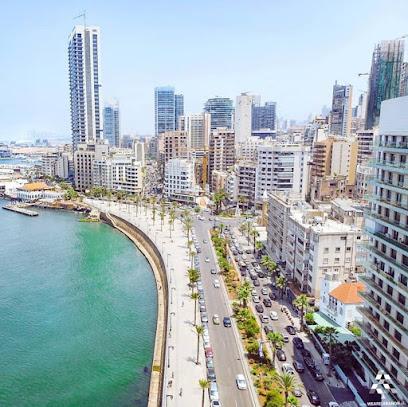
Nicolas Sursock Museum
Explore the Nicolas Sursock Museum in Beirut - a treasure trove of modern art and Lebanese culture in a stunning architectural setting.
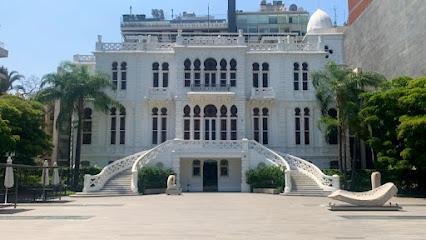
Monastery Saint Maroun
Experience serenity and spirituality at Monastery Saint Maroun in Aannaya, a cultural gem nestled in the Lebanese mountains.
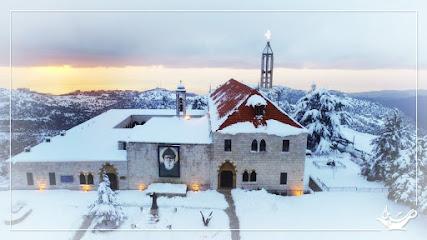
Rachid Karami International Fair by Oscar Niemeyer
Explore the Rachid Karami International Fair in Tripoli, Lebanon, a stunning architectural masterpiece by Oscar Niemeyer, rich in culture and history.
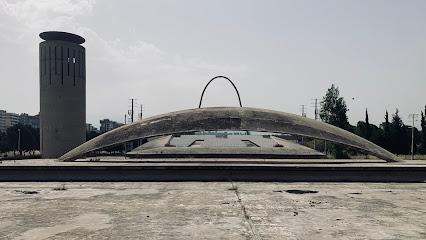
Essential places to dine
Feniqia
Experience authentic Lebanese cuisine at Feniqia in Byblos – where every dish tells a story.
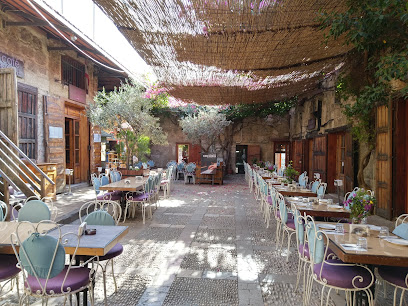
Al Kaddoum Restaurant - مطعم القدّوم
Experience authentic Lebanese flavors at Al Kaddoum Restaurant in Byblos – a must-visit destination for food lovers exploring Lebanon's culinary scene.
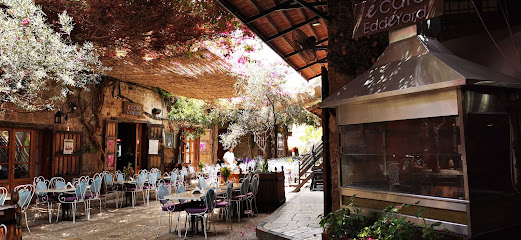
Ksar Lebanese Diner
Experience authentic Lebanese cuisine in Byblos at Ksar Lebanese Diner – a must-visit for food lovers seeking local flavors.
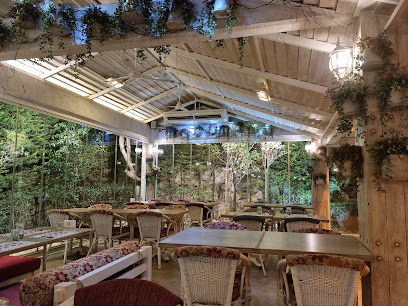
Stephano Cafe
Discover authentic Lebanese flavors at Stephano Cafe in Byblos, where every dish tells a story amidst stunning coastal views.
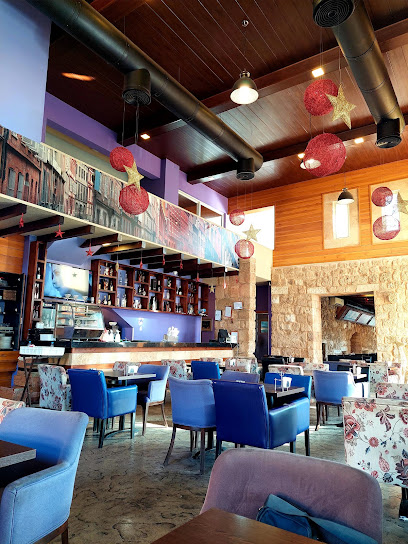
Sapori E Vini
Experience authentic Italian cuisine at Sapori E Vini in Byblos - where every meal tells a story of flavor and tradition.
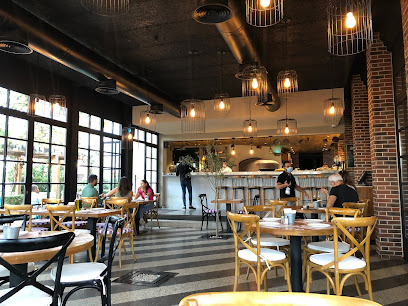
Aal Baher
Experience exquisite seafood dining at Aal Baher in Byblos—where every dish celebrates the flavors of the Mediterranean with stunning sea views.
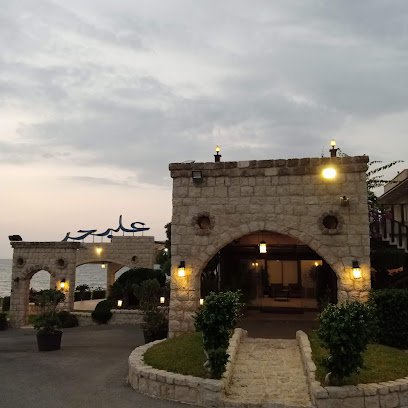
Roadster Diner
Discover Roadster Diner in Byblos for an unforgettable blend of American comfort food and Lebanese warmth.
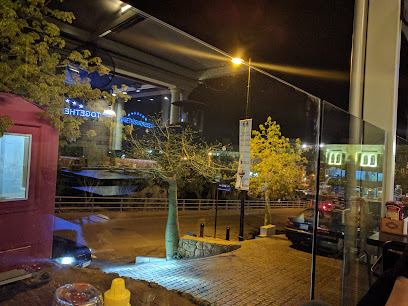
Locanda A La Granda
Experience authentic Lebanese cuisine at Locanda A La Granda in Byblos - where tradition meets taste in a warm and inviting atmosphere.
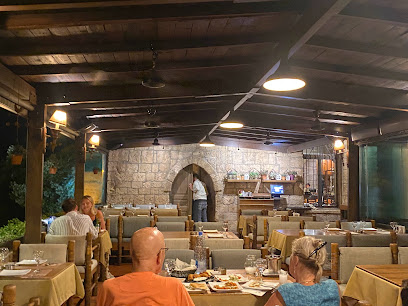
Khan Jbeil
Discover authentic Lebanese cuisine at Khan Jbeil in Byblos – where tradition meets taste in a stunning coastal setting.
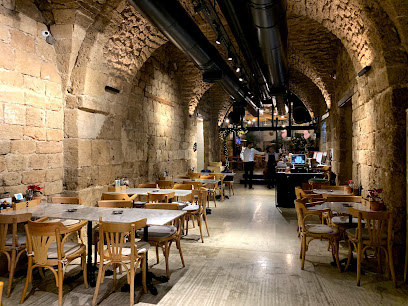
KAMI - Japanese
Experience authentic Japanese cuisine at KAMI in Byblos - a must-visit for sushi lovers seeking fresh flavors and vibrant dining.
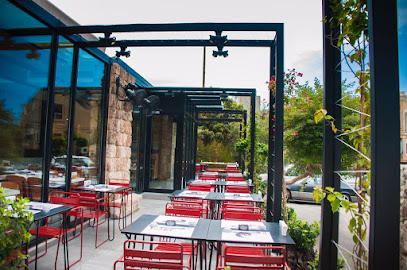
El Molino Mexican Restaurant
Savor authentic Mexican cuisine at El Molino Mexican Restaurant in Byblos - where every dish tells a story.
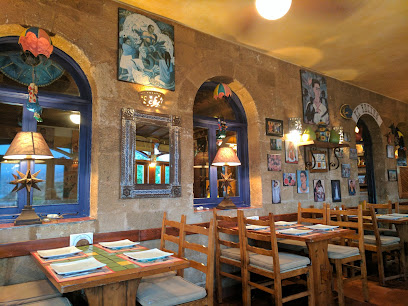
Al Baylassan
Experience the best of Lebanese cuisine at Al Baylassan in Byblos – where tradition meets modernity in every delicious bite.
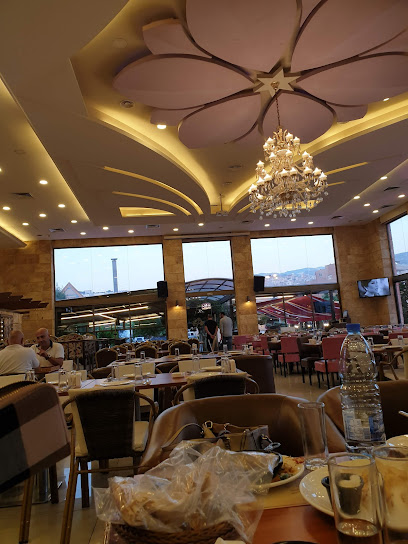
Bab el Mina
Experience authentic Lebanese cuisine at Bab el Mina in Mina Jbeil - where tradition meets taste with stunning Mediterranean views.
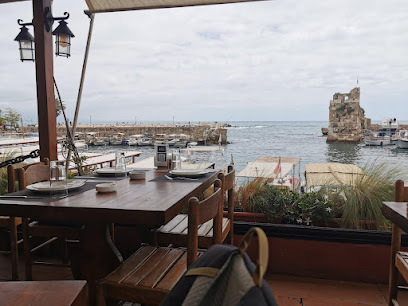
Mon Maki a Moi - Byblos
Experience exquisite sushi in Byblos at Mon Maki a Moi - where tradition meets modern culinary art along the Mediterranean coast.
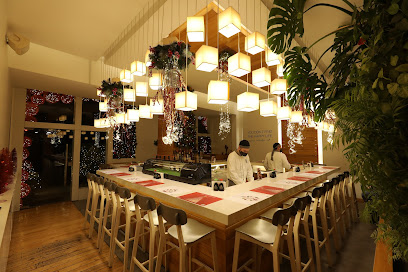
BillyBoyz
Experience authentic American cuisine at BillyBoyz in Byblos' Old Souk - where flavor meets history.
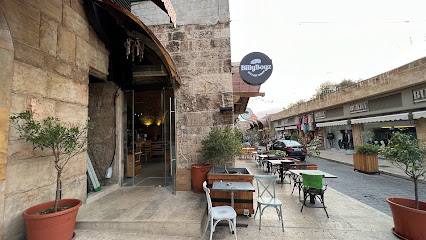
Markets, malls and hidden boutiques
Antoine Saliba World of Jewelry
Explore the stunning collection of handcrafted jewelry at Antoine Saliba World of Jewelry, a must-visit destination in Byblos for every jewelry lover.
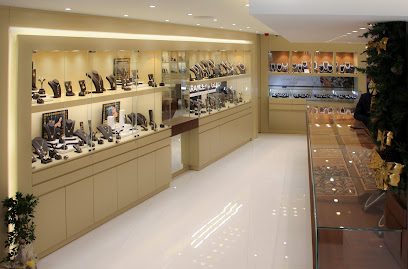
Eldorado Shopping Center
Discover the Eldorado Shopping Center in Byblos – where contemporary fashion meets ancient history, perfect for every tourist's shopping spree.
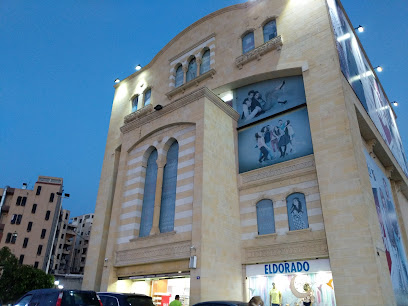
Moustache
Discover stylish local fashion at Moustache in Byblos, a unique clothing store blending contemporary design with authentic Lebanese craftsmanship.
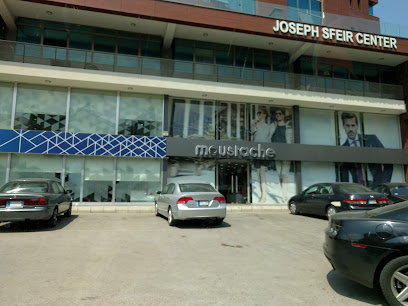
Byblos Home
Explore Byblos Home for unique home goods that embody Lebanese craftsmanship and culture in the historic city of Byblos.
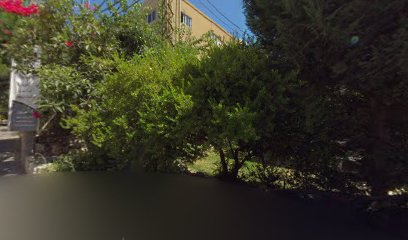
Special Touch Byblos Lebanon
Explore the vibrant shopping scene at Special Touch in Byblos, where local culture meets modern retail and dining experiences.
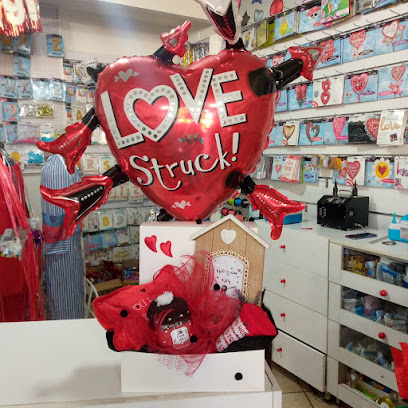
TOYS 4 LESS - JBEIL
Explore a vibrant toy wonderland at TOYS 4 LESS - JBEIL, where fun and creativity meet in the heart of Byblos.
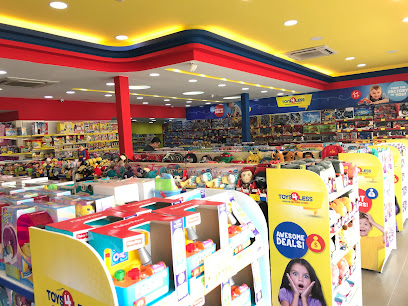
Gaby Sport
Discover Gaby Sport in Byblos: Your ultimate destination for quality sportswear and athletic accessories.
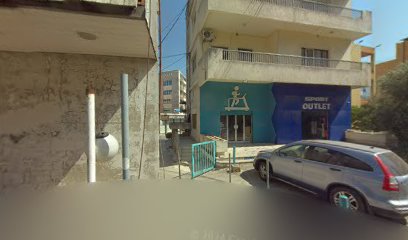
Akwaba
Discover Akwaba in Byblos, where fashion meets beauty in a unique shopping experience that captures the essence of modern Lebanese style.
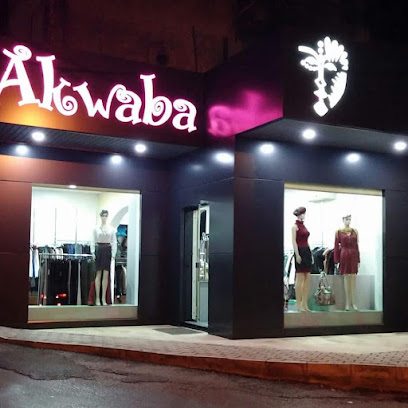
Blancheline Boutique
Explore the enchanting Blancheline Boutique for unique Lebanese craftsmanship, clothing, and accessories along the stunning Sea Side Rd.
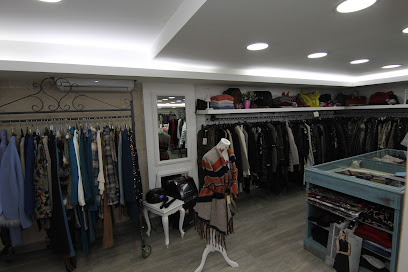
Wow Surprise Jbeil
Explore the charm of Byblos at Wow Surprise Jbeil, your destination for unique souvenirs and authentic Lebanese crafts.
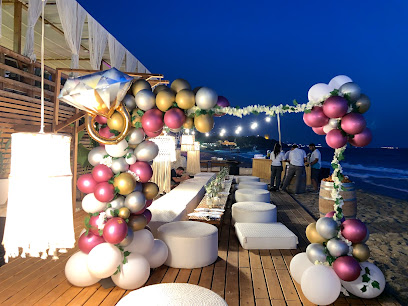
Boutique du Monde | Jbeil
Discover unique furniture and home décor at Boutique du Monde in Byblos, where tradition meets modern style.
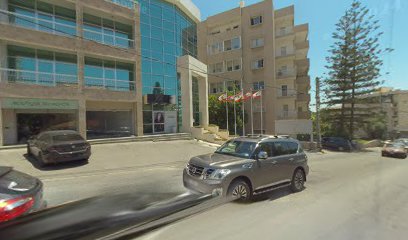
Iskandar Baramili Music Store
Discover the heart of Lebanese music at Iskandar Baramili Music Store in Byblos, where passion meets tradition in a vibrant cultural hub.
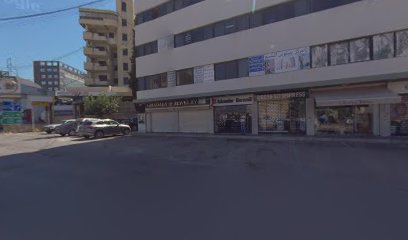
اراكيل الباش
Experience the authentic taste of Lebanon at Aarakil Al-Bash, a premier tobacco shop in historic Byblos, offering quality products and local charm.
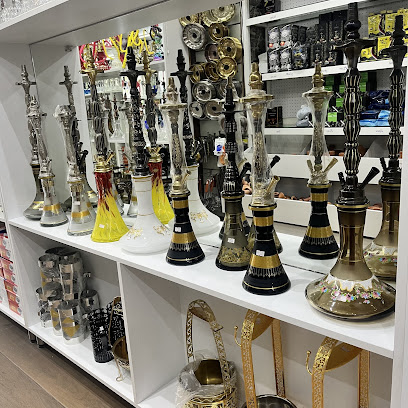
Nai Lingerie Jbeil Store
Explore Nai Lingerie Jbeil Store in Byblos for exquisite lingerie that embodies elegance and local craftsmanship.
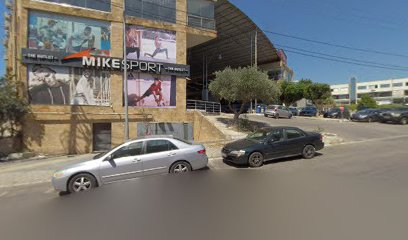
Afkar & Hiraf Shop
Explore Afkar & Hiraf Shop in Jbeil's old souk for unique Lebanese souvenirs and a taste of local culture.

Essential bars & hidden hideouts
Kina handcrafted bar
Discover the charm of Kina Handcrafted Bar in Byblos, where artisanal cocktails meet breathtaking sunset views over the Mediterranean.
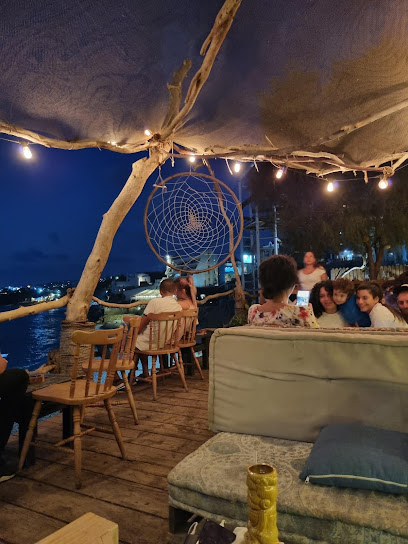
Frolic, pub & cafe
Experience the vibrant atmosphere at Frolic, a unique pub and cafe in Byblos' historic Old Souk, offering delightful food and drinks.
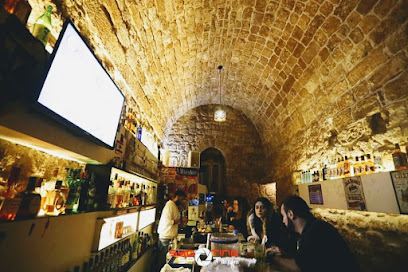
Archive The Club
Discover the vibrant nightlife of Byblos at Archive The Club, where great music meets a lively atmosphere in a historic setting.
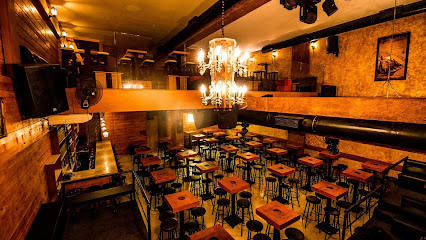
Garden By La storia
Discover Garden By La Storia, a vibrant bar and Italian restaurant in Byblos, offering a unique blend of flavors and ambiance in the heart of Lebanon.
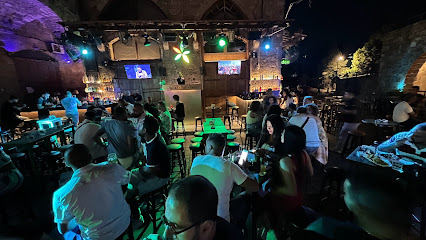
Oasis
Experience stunning sea views and vibrant nightlife at Oasis, the ultimate bar in Byblos for refreshing drinks and unforgettable moments.
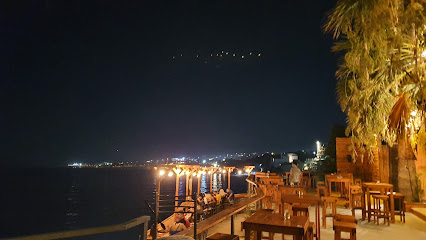
Ashtar - Jazz Bar
Discover the soulful sounds and vibrant atmosphere of Ashtar Jazz Bar in Byblos, where every night is a celebration of music and culture.
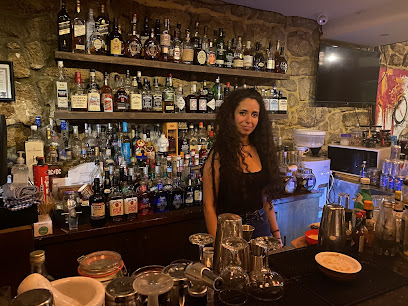
Drink and Sing Jbeil
Experience the vibrant nightlife of Byblos at Drink and Sing Jbeil, where karaoke meets local culture for an unforgettable evening.
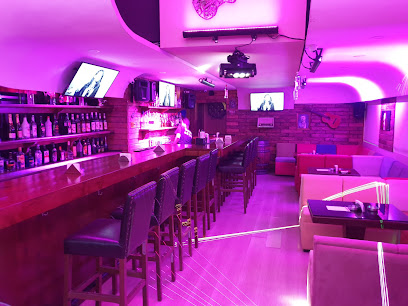
Moreliabar
Experience the vibrant nightlife of Byblos at Moreliabar, where Mexican cuisine meets Lebanese hospitality in a lively setting.
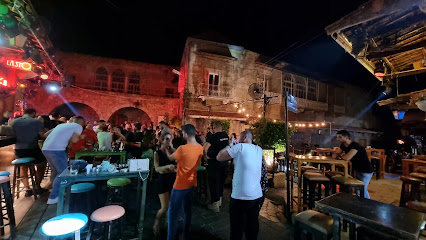
Old Pub, Cafe & Pub
Experience the vibrant atmosphere of Byblos at the Old Pub, Cafe & Pub, where tradition meets a lively bar scene and local flavors abound.
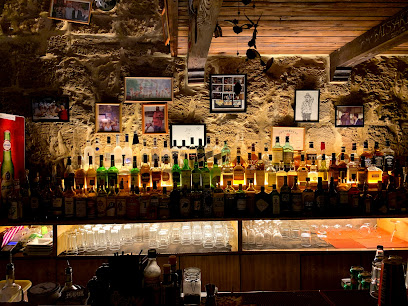
Siabar Byblos
Experience the vibrant nightlife and stunning sunset views at Siabar Byblos, your perfect lounge destination in Byblos.
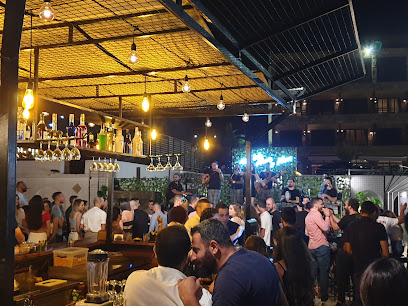
Nero Resto Bar
Experience the vibrant flavors of Byblos at Nero Resto Bar, where good food and drinks meet a welcoming atmosphere.
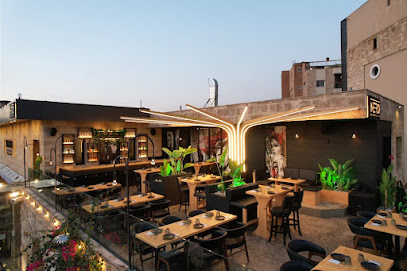
Le bistro de byblos
Discover the vibrant atmosphere and delicious Lebanese cuisine at Le Bistro de Byblos, a must-visit pub in the historic city of Byblos.
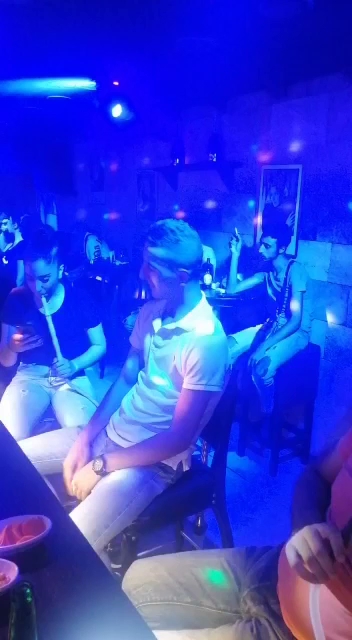
Monkey Tale Lebanon
Experience the lively nightlife at Monkey Tale in Byblos, where stunning sea views and signature cocktails await you.
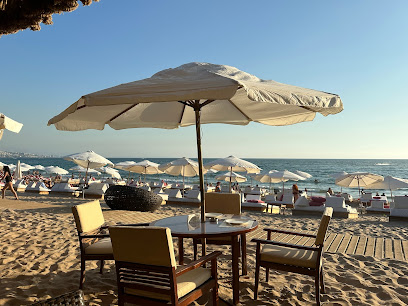
Cueva Byblos
Experience the essence of Byblos nightlife at Cueva Byblos, where vibrant music meets delicious drinks in a welcoming atmosphere.
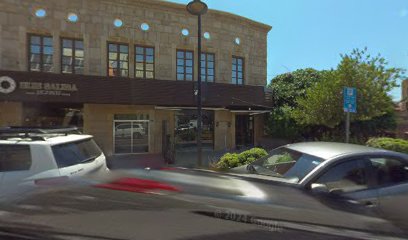
Bernis beer
Discover Bernis Beer in Byblos, where local charm meets refreshing brews in a vibrant bar atmosphere.

Travel experiences inspired by this city
Explore more travel diariesLocal Phrases
-
- Helloمرحبا
[marhaba] - Goodbyeوداعا
[wadaan] - Yesنعم
[naam] - Noلا
[la] - Please/You're welcomeمن فضلك
[min fadlik] - Thank youشكرا
[shukran] - Excuse me/Sorryعذرا
[aadhara] - How are you?كيف حالك؟
[kayf halak?] - Fine. And you?بخير. وأنت؟
[bikhayr. wa anta?] - Do you speak English?هل تتحدث الإنجليزية؟
[hal tatahadath al'inglizia?] - I don't understandأنا لا أفهم
[ana la afham]
- Helloمرحبا
-
- I'd like to see the menu, pleaseأريد أن أرى القائمة، من فضلك
[uriid an ara alqaimah, min fadlik] - I don't eat meatأنا لا آكل اللحم
[ana la aakul allahm] - Cheers!صحتين!
[sahtein!] - I would like to pay, pleaseأود أن أدفع، من فضلك
[awad an adfa', min fadlik]
- I'd like to see the menu, pleaseأريد أن أرى القائمة، من فضلك
-
- Help!مساعدة!
[musa'adah!] - Go away!انصرف!
[ansarif!] - Call the Police!اتصل بالشرطة!
[atasil bialshurta!] - Call a doctor!اتصل بالطبيب!
[atasil baltabib!] - I'm lostلقد ضاعت مني
[laqad da'at minni] - I'm illأنا مريض
[ana mareed]
- Help!مساعدة!
-
- I'd like to buy...أريد أن أشتري...
[uriid an ashtari...] - I'm just lookingأنا فقط أتفرج
[ana faqat atfarij] - How much is it?كم تكلفة؟
[kam taklifa?] - That's too expensiveهذا غالي جدا
[hatha ghali jiddan] - Can you lower the price?هل يمكنك خفض السعر؟
[hal yumkinuk khafd alsu'r?]
- I'd like to buy...أريد أن أشتري...
-
- What time is it?كم الساعة؟
[kam alsaa'a?] - It's one o'clockالساعة الواحدة
[alsaa'ah alwahidah] - Half past (10)النصف بعد (10)
[alnusf ba'd (10)] - Morningالصباح
[alsabah] - Afternoonالعصر
[aleasr] - Eveningالمساء
[almasa'] - Yesterdayأمس
[ams] - Todayاليوم
[alyawm] - Tomorrowغدا
[ghadan] - 1واحد
[wahid] - 2اثنان
[ithnan] - 3ثلاثة
[thulatha] - 4أربعة
[arba'a] - 5خمسة
[khamsa] - 6ستة
[sitta] - 7سبعة
[sab'a] - 8ثمانية
[thamania] - 9تسعة
[tis'ah] - 10عشرة
[ashara]
- What time is it?كم الساعة؟
-
- Where's a/the...?أين...؟
[ayn...?] - What's the address?ما هو العنوان؟
[ma hu al'anaan?] - Can you show me (on the map)?هل يمكنك أن تريني (على الخريطة)؟
[hal yumkinuk an tureeni (ala alkhareetah)?] - When's the next (bus)?متى الحافلة التالية؟
[mata alhafilat altalya?] - A ticket (to ....)تذكرة (إلى ...)
[tazkirah (ila ...)]
- Where's a/the...?أين...؟
History of Byblos
-
Byblos, known locally as Jbeil, is one of the oldest continuously inhabited cities in the world. Archaeological evidence suggests that the city was founded around 8800 BC and has been continuously occupied since around 5000 BC. It was originally a small fishing village, which grew due to its strategic coastal location.
-
Byblos is often credited with being the place where the first alphabet was created. The Phoenicians, who were skilled sailors and traders, developed the Phoenician alphabet around 1050 BC. This significant innovation laid the groundwork for modern alphabets and greatly influenced ancient scripts such as Greek and Latin.
-
During the Phoenician era, Byblos thrived as a major trading hub. It was a crucial center for the export of cedar wood, papyrus, and other valuable commodities. The city's wealth is evident from the impressive archaeological remains, including grand temples and royal tombs, which testify to its ancient prosperity.
-
Byblos had a strong cultural and trade connection with Ancient Egypt. The exchange of goods and ideas led to significant Egyptian influence in Byblos, as seen in the archaeological findings of Egyptian artifacts and inscriptions. The Temple of the Obelisks, dedicated to the Egyptian god Reshef, is a notable example of this influence.
-
Byblos continued to flourish under Greek and later Roman rule. The city was known as Gibelet during this period. The remains of grand Roman structures, such as the Roman Theatre and a well-preserved Roman road, illustrate the city's continued importance and prosperity during these eras.
-
In the 12th century, Byblos came under the control of the Crusaders, who built the impressive Byblos Castle, a significant military fortification that still stands today. The castle was a key strategic point during the Crusades, reflecting the city's enduring importance through various historical epochs.
-
Today, Byblos is a vibrant city that seamlessly blends its rich history with modern life. It is a UNESCO World Heritage Site, celebrated for its well-preserved archaeological sites, charming old souks, and bustling harbor. The city's cultural heritage is showcased in its museums, festivals, and ongoing archaeological research.
Byblos Essentials
-
Byblos, located about 37 kilometers north of Beirut, is easily accessible by various means of transportation. The nearest international airport is Beirut-Rafic Hariri International Airport. From the airport, you can hire a taxi or use ride-sharing services to reach Byblos, which typically takes around 45 minutes to an hour depending on traffic. Alternatively, you can take a bus from Charles Helou Bus Station in Beirut to Byblos. The bus ride offers a scenic view of the Mediterranean coastline and usually takes about an hour.
-
Byblos is a relatively small city, and many of its attractions are within walking distance. For longer distances, local taxis are readily available and can be hailed from the street or booked via phone. Buses and minibuses (servees) operate within the city and connect to nearby areas. Renting a car is also an option, but keep in mind that traffic can be heavy, particularly during peak hours. Parking might be limited in certain parts of the city.
-
The official currency in Lebanon is the Lebanese Pound (LBP), although US dollars are widely accepted. Credit cards are commonly used in hotels, restaurants, and larger shops, but it is advisable to carry cash for smaller establishments and markets. ATMs are plentiful in Byblos, so withdrawing cash is convenient. Be aware of currency exchange rates and fees when using credit cards or exchanging money.
-
Byblos is generally considered a safe destination for tourists. However, it is always wise to exercise standard precautions. Avoid isolated areas at night and be cautious of your belongings in crowded places. While Byblos does not have specific high-crime areas targeting tourists, staying vigilant and aware of your surroundings is recommended. It is also advisable to keep copies of important documents such as your passport and travel insurance.
-
In case of an emergency, dial 112 for immediate assistance. Byblos has a local police station and medical facilities to handle emergencies. For minor health issues, pharmacies are available throughout the city. It is highly recommended to have travel insurance that covers medical emergencies. Familiarize yourself with the location of the nearest hospital or clinic to your accommodation.
-
Fashion: Do dress modestly, especially when visiting religious sites. Avoid wearing revealing clothing. Religion: Do respect local customs and traditions. When visiting churches or mosques, dress conservatively and follow any specific guidelines. Public Transport: Do be polite and respectful towards other passengers. Don’t eat or drink on public transport. Greetings: Do greet people with a handshake. A friendly smile and 'Marhaba' (hello) go a long way. Eating & Drinking: Do try local delicacies and accept food offerings graciously. Don’t refuse hospitality, as it is considered impolite.
-
To experience Byblos like a local, explore the bustling souks where you can find traditional Lebanese goods and souvenirs. Visit the old port for a taste of local life and enjoy fresh seafood at the harbor-side restaurants. Engage with locals, who are often friendly and willing to share stories about the city’s rich history. Don’t miss the Byblos Castle and the ancient ruins that offer a glimpse into the city's storied past. For a unique experience, attend one of the local festivals, such as the Byblos International Festival, which features a range of cultural performances.
Nearby Cities to Byblos
-
Things To Do in Batroun
-
Things To Do in Jounieh
-
Things To Do in Broummana
-
Things To Do in Beirut
-
Things To Do in Aley
-
Things To Do in Bcharre
-
Things To Do in Zahle
-
Things To Do in Deir el Qamar
-
Things To Do in Anjar
-
Things To Do in Baalbek
-
Things To Do in Sidon
-
Things To Do in Rashaya
-
Things To Do in Marjayoun
-
Things To Do in Tyre
-
Things To Do in Rosh HaNikra














